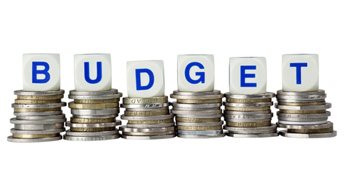Easy Steps to Avoid Bankruptcy
What is Bankruptcy?
1. Bankruptcy, in essence, is a last resort financial maneuver activated by those individuals or businesses that face insurmountable debts as a result of overspending or faulty business ventures.

2. All bankruptcy claims are a part of a Federal program, and are thus federally-operated financial maneuvers. Bankruptcy offers an individual (or business entity) a way to alleviate people or businesses from all debts incurred—both secured and unsecured.
3. A bankruptcy filing offers relief to those in debt, through either liquidation or restructuring.
4. As a result, bankruptcy claims offer an alternative payment plan or liquidation process to help pay off all debts incurred. Liquidation simply means that the debtor’s assets (e.g., their cars or mortgage) are sold off. The proceeds of the sale are then used to fulfill their debt obligations.
5. All bankruptcy claims are a part of a Federal program. As a result, the laws and regulations which govern bankruptcy claims are distributed and heard at the Federal level. In other words, individuals or business entities may not file for bankruptcy at the local level. That being said, each claim is filed through the Federal court system which oversees your particular jurisdiction.
6. Individuals and business entities who file bankruptcy do so to free themselves from the grasps of creditors who will perpetually seek repayment.
7. Filing for bankruptcy enables those individuals and entities struggling with debts to reorganize their debt structure by supplying incremental payments to their creditors.
Contact a bankruptcy lawyer to review your case.
8. There are many different forms of bankruptcy filings, the most common being a Chapter 7 filing, a Chapter 11 filing, and a Chapter 13 filing.
How to Avoid Bankruptcy
1. The most fundamental way to avoid bankruptcy is to develop a suitable budget for oneself. Individuals are often forced into bankruptcy because they extend themselves beyond their financial means. Bankruptcy issues arise because debts exceed the ability of one to repay.
This simple relationship occurs when an individual consumes beyond their income or savings. To prevent this from happening and to subsequently avoid bankruptcy, an individual must develop a budget. The budget should be created in alignment with one’s individual disposable income, daily expenses, and desired purchases. Developing a suitable budget will guarantee that one will not spend beyond their means, thus effectively avoiding bankruptcy.
2. Another fundamental way to avoid bankruptcy is to sell whatever one can spare. Oftentimes people hoard numerous assets, which eventually decrease in value and become useless to the owner. If you notice that your payments and loan requirements are suffocating your daily finances, you should sell off your assets that you deem meaningless. Liquidating assets through various venues will result in available cash to help pay off debts.
3. To avoid bankruptcy, you should also be in constant contact with your creditors. Although creditors may institute predatory lending and collecting techniques, the majority of them are flexible and will create alternative or periodic payment plans to help alleviate your financial burden.